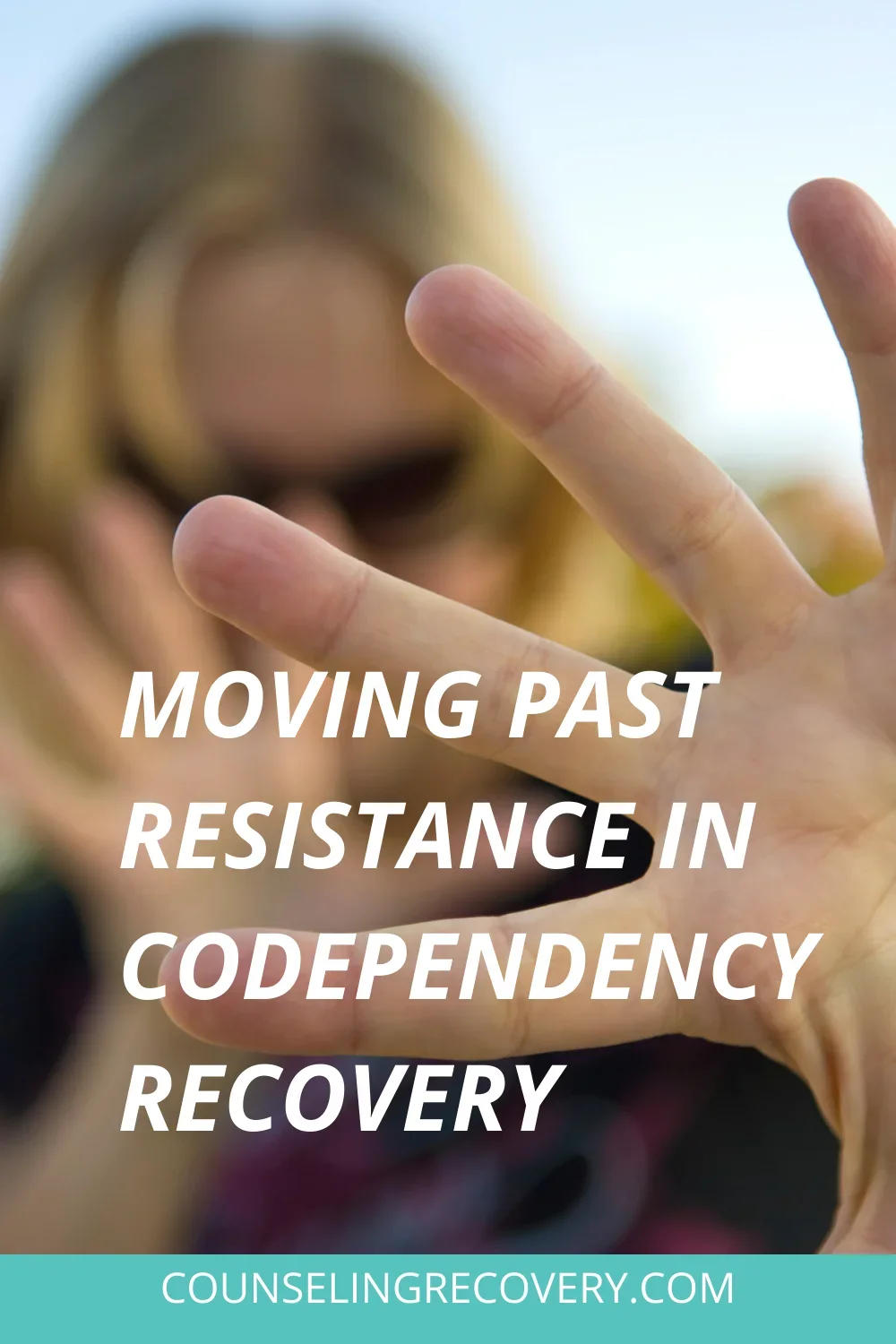Moving Past Resistance in Codependency Recovery
Addressing Resistance in Recovery
People who struggle with codependency don’t find their way into recovery easily. Because they get their value in helping others, they ignore their own needs for the sake of others. In relationships, codependent people struggle to receive because it feels too vulnerable.
Being able to recognize their own behavior as a problem is challenging. While resistance to change is normal, this article will give you some practical tips for how to move through it with grace.
What is Codependency?
First, let’s define our terms.
Codependency is a relationship pattern where a person becomes hyper-focused on others at their own expense. They compulsively give past the point of hurting but they can’t stop.
Codependents are kind-hearted but suffer in silence. The hardest part is who they attract: people with addictions or narcissistic tendencies. Their relationships become a source of pain and frustration because they don’t know how to honor their own needs. Instead, they’ve learned to sacrifice themselves and tolerate abusive behavior.
With all these problems, why is it so hard for the codependent person to seek help? To move past the resistance here are some common beliefs that get in the way.
#1 Codependent people think other people are the problem.
Because codependent people focus on fixing others, they have trouble seeing their own behavior as a problem. They appear selfless but their good intentions make it difficult for them to recognize when they’ve crossed the line.
Codependent people believe that if only others would act right, take their advice, or stop drinking – everything would be fine. Because they want to be helpful, they assume they have all the answers.
When others don’t follow their advice, they get frustrated instead of seeing their control as the problem. No one likes being told what to do, but in codependent relationships, this happens frequently.
Family and friends get tired of being told how they should behave. Unfortunately, the codependent person thinks they are just being helpful.
Tip: Getting into recovery means confronting old beliefs and behaviors. Start focusing where you do have control (mainly ourselves) instead where you don’t (other people, places, and things).
#2 People who struggle with codependency don’t think they need help.
Since the codependent person is always trying to help, they think they don’t have a problem. It often takes a breakup for the codependent to finally seek help. They assume that they can recover on their own. Joining a group or seeing therapy feels too vulnerable but to create a lasting recovery, they will need outside help.
By joining a 12-step program, like Al-Anon or CODA, they get access to a community that will encourage introspection and growth. This is an important first step in healing beyond the dysfunction.
Typically, people working a 12-step program make faster progress than those who attempt it alone. Without adequate support, it’s difficult to change old behaviors because it’s hard to recognize our own dysfunction.
Tip: Find additional support. Recovery is much easier when you’re not alone. Even starting a private group with two like-minded friends can get you started.
#3 Codependent people believe that if they’ve already left their alcoholic or abusive partner, there’s nothing else to change.
Leaving an addicted partner (or someone who mistreats you) doesn’t solve the problem. Without the alcoholic, the codependent person assumes life will improve - but soon realizes that their problems weren’t all about the drinking.
Codependent behaviors don’t exist only when there is addiction. Over time, issues of control, unrealistic expectations, and unhealthy dependencies have become deeply rooted relationship patterns.
Until you can acknowledge your codependency, it will be a struggle to maintain healthy relationships. Looking to others for validation often creates an unhealthy dependency and contribute to feeling lost in relationships.
Tip: Leaving a dysfunctional relationship can be the turning point to examine old behaviors that don’t work. It doesn’t mean you’ll be alone forever, it means you will learn how to love yourself.
How do you recover from codependency?
Codependency recovery starts with a willingness to change ourselves instead of expecting others to change for us. Eventually, the pain of doing the same thing expecting different results becomes the catalyst for starting recovery.
Common codependent behaviors to focus on include:
Ignoring your own needs (like sleep, food, or self-care)
Saying “yes” when you mean “no”
Not advocating for what you value
Pretending everything is okay when it’s not
Having a high tolerance for abusive behavior
Being unable to let go of unhealthy relationships
Giving too much at your own expense
Not admitting to hurt feelings to avoid conflict
Codependency recovery begins by focusing on ourselves and less on others. It’s about letting others be who they are even when we think they’re off track. We begin to see that giving them the answers doesn’t work out too well.
Tip: While it takes a lot of courage to seek help, recovery provides an opportunity to start a new life that far surpasses the isolation we once knew. For more on codependency recovery click here.
Final thoughts
Recovery takes commitment. It’s a process of unlearning dysfunctional behaviors and honoring yourself no matter what others are doing. This journey requires the support of others who have been where you are now. This can include therapy, but to get the most healing it should include a support group or 12-step program.
Advocating for yourself helps you break the cycle so you can finally create a new way of living that you truly love.



